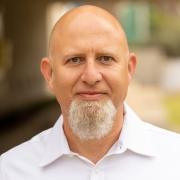The Israeli Education System and the challenges of the 21st century
Amit Edri, Director General of the Israeli Ministry of Education, Alumnus of the TAU Faculty of Social Sciences, in an article for the TAU Alumni community for the International Day of Education, Occurring on January 24th
Will the world's education systems succeed in preparing today's students for jobs that have not yet been created, for technologies that have not yet been invented, and for solving problems that no one has yet foreseen?
Should we equip our students with a cultural capital that will allow them to advance in the future job market or teach them to work in teams, in order to find a solution to a world-wide problem, or the other way around - to cultivate skills focused on the individual, skills that will make each student a creative independent Entrepreneur?
Over the past few years, the world's education systems have been grappling with many questions about the tools that must be given to today’s younger generation in order for them to cope with future challenges.
After a long and meticulous process that the Ministry of Education has went through in recent years, thirteen skills were defined which will give any graduate of the Israeli education system a toolkit, which will help him deal in the future with the great challenges that arise in this century. The skills were divided into four clusters:
- Cognitive Cluster: Linguistic Literacy, Mathematical Literacy, Scientific Literacy, Critical Thinking, Creative Thinking, Digital Literacy and Information Literacy.
- Intrapersonal Cluster: Self-Awareness and Self-Direction.
- Interpersonal Cluster: Social Awareness, Social Conduct and Global Literacy.
- Physical Cluster: Physical / Health Literacy.
And I keep asking, will it be enough to assimilate these skills to bring about the desired changes? The answer is no. The Israeli education system needs further depth changes. It needs to break its centralization in favor of expanding the managerial and pedagogical flexibility of School Principals, who are the model of education. They are the center of educational endeavor and therefore they have the knowledge and ability to adapt the needs of education to their students.
With the entry of the current Minister of Education, Yoav Galant, into office, he has announced that one of the key flags he will raise will be to promote managerial and pedagogical flexibility. We have identified that one of the main barriers preventing important changes in the system is the over-centralization of the Ministry of Education. We intend to break the centralization in favor of strengthening the school administration's backbone. We started by providing flexibility in the management of school hours, so that each school will plan or increase and adjust the scope of hours and subjects to the needs of the students. Later, thanks to the opportunities offered to us by the COVID-19 pandemic, we announced flexibility in the learning format so that each school could conduct its studies in different ways, in small groups or individually, online and offline. We allowed each school to decide on the weekly study framework according to the physical spaces available to it. To assist the principals, we have adapted urban buildings located throughout the city. These should help him in flexible planning of the learning format. In addition, we arranged the existence of educational activities in open spaces as well.
There is no doubt that all these are still not enough. So what else are we doing? We are working on a series of moves at the end of which we will transfer more resources, powers in the pedagogical field and professional development to School Principals. Of course, we will also work to reduce the Bureaucracy phenomenon, as the many forms that principals and teachers are currently required to fill in take a lot of their time. Time is a limited and precious resource, and we will work to optimize it for the benefit of education staff. These days, a committee dealing with precisely this important issue of transferring powers to principals. The recommendations of this team will have an important impact in shaping the way the system works in the coming years.
The issue of narrowing the gaps is also takes central place in our agenda. The Israeli education system is characterized by high variance and the highest disparities among OECD countries, so there will be no change without this issue being properly addressed. Not in the form of uniform responses but in the form of personalized suits that suit the needs of the various sectors and populations. The COVID crisis has deepened the gaps and problems within the system. We devote a lot of time to dealing with individual problems and responses. One of the big moves we are leading is narrowing the technological gaps. We have allocated NIS 1.2 billion in favor of this important issue. We have purchased 150,000 laptops, so far we have distributed about 130,000 computers to students who cannot afford them. By the end of January we are due to complete this move. At the same time, we began distributing kosher mobile phones in the Orthodox society. We are working to lay innovative technological infrastructures in 4,650 schools and upgrade old technological infrastructures to new and advanced ones. We are also in full swing in the training of teachers in the field of distant learning in the technological, pedagogical and emotional aspects. At the same time, we are working to enrich the digital content database, among other things, with the Ministry of Digital Israel.
The issue of reducing the gaps has other sides as well. We are aware of them too. They are accompanied in the office by a professional team. In the near future, the team's work plan and key moves we are leading in this area will be made public.
COVID-19 has forced the world’s education systems to make immediate changes. It transferred them all to a format of integrated learning. This type of Learning will stay with us after the pandemic ends. We also pay attention to this and prepare to combine different formats of learning, which go beyond the framework we have known so far. The system's challenges are great and wide, and they continue into a world of assessment that also requires change, and in teaching that is tailored to the student's needs.
But it is not just the challenges that the system is facing. There are barriers too. I referred to one of them - the barrier of centralization. Another barrier is the difficulty of advancing long-term goals. They are especially needed in the education system, where the measurement and change processes require patience and maturation. COVID-19 has summoned great and important opportunities for us, to make changes that the system has sought to promote. It has forced on us a reality that requires adjustments. Over the past year we have begun to lay an important and significant technological and pedagogical infrastructure; Integrated learning, individual and group teaching. Teaching in different spaces, based on online and innovative teaching materials. We adapted the matriculation for the needs of the hour, so we reduced the external exams to only 5. This outline will also apply in the next school year (2021-2022). The system must preserve these changes and expand them in the coming years as well. They are a necessity of reality and an arrow aimed at the 21st century. More than anything, they will ensure the success of the Israeli students to face the challenges that are happening in this cent





